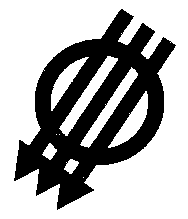The nationality-programme of the Social-Democratic Workers’ Party of Austria: a socialist solution to the ‘national question’?

Upon its founding in Hainfeld in 1889, the Social-Democratic Workers’ Party of Austria (Sozialdemokratische Arbeiterpartei Österreichs, SDAPÖ) was faced with challenges which, outside of Russia, were largely unique within the context of European socialist politics. Austria-Hungary was a sprawling multinational land empire, a dual monarchy governing a cosmopolitan blend of different races which had become increasingly dispersed as a by-product of capitalist development and growing industrialization. As a consequence, from the very beginning the SDAPÖ found itself not only dealing with material class issues, but also with the competing demands of different national ethnic groups, and the party soon discovered that abstract appeals to “internationalism” were often not enough to attenuate the ethnic disquiet felt by many workers – whether Germans faced with the threat of “cheap Czech labor” migrating from other parts of the Empire, or non-German minorities who felt discriminated against by the state (and even by the party and the unions). The ‘national question’ proved so divisive for the SDAPÖ that in 1897 it split into six separate (but still theoretically united) Social-Democratic parties, one for each of the major ethnic groups represented within the Austrian state. In 1899, at a Social-Democratic conference in Brünn, the SDAPÖ made an attempt to grapple with the issue directly by drafting a “nationality-programme,” a proposed outline for a future socialist state which the party believed would eliminate national conflicts among the workers while still preserving Austria as a unified, independent entity. The Brünn proposal (a “democratic state federation of nationalities”), and much of the theory which developed out of it in the following years, would subsequently become one of the defining characteristics of “Austromarxism,” that unique form of Social-Democracy which developed within Austria as a consequence of the country’s particular political idiosyncrasies. In order to explore the nationality-programme and some of the critical reactions to it from the broader socialist movement, I have reproduced a number of documents below. The first is a brief account from a historical work providing some background and context to the programme. The second is the translated text of the nationality-programme itself, taken from an SDAPÖ publication. The final three pieces are extracts, critiques of the programme from three different sources: one from Otto Bauer, representing an internal critique (the Austromarxist view); one from Joseph Stalin, representing the Bolshevist perspective; and one from Alois Ciller, representing the National Socialist outlook. Each of these three men had some connection to the Austrian proposal, whether through background or expertise, and each had his own independent interpretation of the programme’s efficacy and its potential impact upon socialist theory and socialist activism.
Nationalism Among the Workers:
The Historical Context Behind the Social-Democratic Nationality-Programme
From historian Andrew G. Whiteside’s “Austrian National Socialism Before 1918” (1962)
Andrew G. Whiteside’s book constitutes an exploration of the conditions which gave rise to the German-völkisch National Socialist movement, whose origins lay within Austria-Hungary (particularly the Sudetenland) and which was already an established, active political force there before Hitler joined the Bavarian German Workers’ Party in 1919. The short extract below, taken from the chapter “Nationalism Among the Workers,” provides some of the historical context surrounding the drafting of the Brünn nationality-programme. It briefly outlines the impact which inter-ethnic worker conflicts had upon the SDAPÖ; the difficulties Social-Democratic leaders experienced in trying to reconcile Austrian conditions with the theory of internationalism; how these conditions helped give rise to the idea of a federation of nationalities; and, finally, how in the end the party’s strategy could still not prevent a complete splitting of the SDAPÖ along racial lines. – Bogumil
The Austrian Social-Democratic Party during these years [the 1890s to early 1900s] was beset by difficulties that did not exist for Socialists in most of the other countries of Europe. Its basic doctrine of proletarian solidarity and the irrelevance of nationality was refuted by the division between Czech and German workers. As a liberating force it had to admit a man’s right to be educated and to do his work in his native tongue. At the same time many of its leaders – Adler, Kautsky, Pernerstorfer, Renner, Bauer, Seliger, Ellenbogen, and others – were firmly convinced that the international labor movement should be directed by men with German brains and character. Like Marx and Engels they distrusted Slavs. Friedrich Stampfer, a spokesman for the betont deutsch1 wing of Austrian Social-Democracy, writing in the Leipziger Volkszeitung, actually opposed political democracy because it would mean handing over the country to Slavs and clericals. Viktor Adler, complaining to Liebknecht about the spread of nationality madness, declared that it was based chiefly on envy, misunderstanding, and irrationality. Otto Bauer, defending the Viennese German leadership, said that the success of the Socialist movement required empire-wide international unions with unified finances, administration, and policy; the Czechs, by stubbornly insisting on autonomy, were failing to show the “the necessary discipline of the minority” and were sabotaging the whole labor movement. Bauer was in the dilemma of all dedicated Austrian Socialists, torn between his belief in the special role of the Germans in advancing Socialism and his sympathy with the Czechs’ desire for national equality. Continue reading






